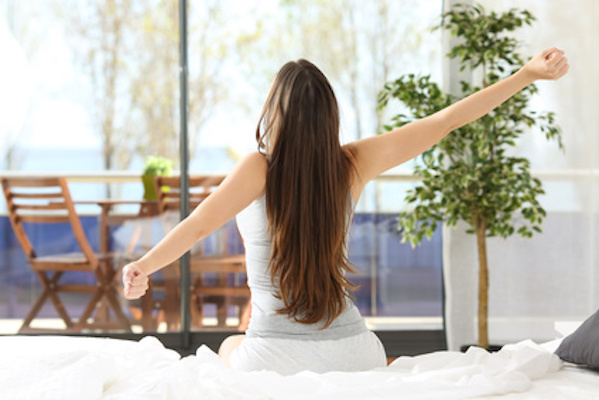Sleep is key to living healthy and maximizing your potential. It is rejuvenating. It impacts your well-being in more ways than one. Learn how to sleep better without medications and make the most of every day.
The Do’s of Good Sleep
- Bedroom: Reserve the bed for sleep and sex ONLY. Keep your bedroom dark. The hormone melatonin peaks at night, but if you are exposed to light during that time, production of this sleep hormone from the pineal gland is inhibited and you stay awake.
- Drinking: Indulge in chamomile tea or warm milk. The tryptophan-rich beverage can act as like a natural sedative.
- Eating: Try a light snack before bed. When you pair foods rich in tryptophan (banana, sesame, soy, turkey, etc.) with simple carbohydrates, it helps calm the brain. better yet, try adding extra calcium to your dinner or nighttime snack.
- Exercise: Exercise in the morning or afternoon. Research shows those who have a regular exercise routine get deeper sleep.
- Timing: Go to bed and wake up the same time every day. Keep your sleep cycle intact.
The Don’ts of Good Sleep
- Bedroom: Believe it or not, the ideal sleep temperature is 65 degrees F! You’d be better served to drop the temperature and grab an extra blanket if you feel you need one.
- Drinking: Alcohol 4 hours prior to sleep is a no-no. While alcohol may seem to have a sedating effect, it actually acts as a stimulant to wake you up in the middle of the night. Lay off the caffeine after lunch too. Caffeine can remain in your body up to twelve hours after drinking it!
- Eating: Don’t eat heavy foods or meals 4 hours before bed. Fatty foods take a lot of work to digest and can keep you awake. In the same way, you shouldn’t eat spicy or acidic foods 4 hours before bed. They can potentially cause heartburn that worsens when you lie down.
- Exercise: Don’t perform vigorous exercise within 2 hours of your bedtime. While exercise can make you feel tired, it actually revs up your body temperature which will keep you awake.
- Timing: Avoid “all-nighters” or excessive naps because they can disrupt your natural circadian rhythm.
Good sleep doesn’t come in the form of a pill but it does come in the form of routine. It takes practice, practice, practice. Before you go looking for “a quick fix”, you should take these steps to get on track. If you continue to have sleep problems despite these how to tips, please contact your doctor for a check up.

